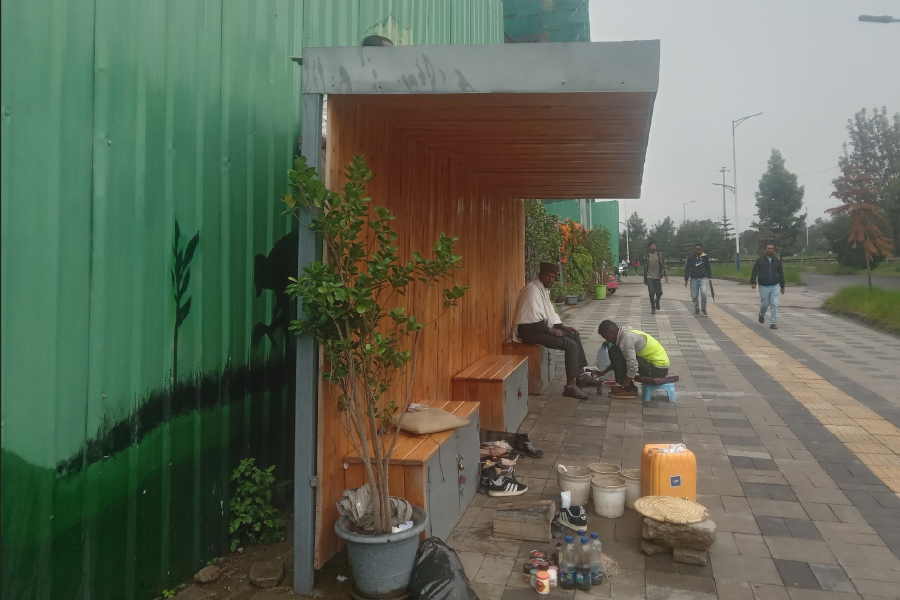
Commentaries | Apr 25,2020
Oct 30 , 2021
By BERSABEH GEBRE ( FORTUNE STAFF WRITER )
Under a public-health scheme in Addis Abeba, community insurance beneficiaries will be subjected to a 30pc increase in their annual premium to 500 Br.
The move comes a year after the Ethiopian Health Insurance Services (HIS), formerly the Health Insurance Agency, forwarded a recommendation to push premiums to double the amount the City Administration decided to accept. The scheme was launched in 2011 with 170 Br as the annual fee, however, the rates have increased at least twice since.
The Addis Abeba City cabinet has approved the increase in premium rates on a scheme designed to provide affordable access to healthcare by low-income households. The scheme covers 288,000 households in the capital, catering to 1.3 million low-income residents primarily engaged in the informal sector. It was an agenda tabled for the cabinet on October 16, 2021, during its first session after the Prosperity Party formed a government earlier this month.
“The cabinet made a reasonable adjustment by taking the current living cost into consideration,” said Ibrahim Keke, director of Community Based Health Insurance at the Addis Abeba Health Bureau.
There is no uniform premium adjustment across the country, with regional states mandated to change rates within their respective jurisdictions. The highest premium in urban areas such as Dire Dawa is 520 Br, while the premium ceiling in rural areas is 250 Br. Regional administrations and Dire Dawa city are expected to adjust their respective premium rates in the coming months.
According to sources close to the matter, the premium rate in some regional states might be set close to the ceiling proposed by the HIS.
“Our mandate is to propose the ideal premium rate,” said Zemedkun Abebe, communications director for Health Insurance Services. “The decision lies with regional states and city administrations.”
Since January this year, the escalation of service fees charged by public health centres and hospitals put pressure on the scheme.
"We're not confident the premiums collected will be sufficient to cover costs even after the adjustment," Zemedkun told Fortune.
Last year, the Health Insurance Service collected 2.2 billion Br in premiums and paid out 1.2 billion Br to 2,000 public health institutions.
The adjusted rate will mean more expenditures for the roughly 40 million poor rural residents and low-income urbanites under the scheme. In an inflationary economy where households spend 60pc on food, food inflation hit 42pc last month, according to the latest consumer price index released by the Ethiopian Statistics Service. Low- and fixed-income groups are left with little to pay for health services, making the prospect of affording the growing premium rates doubtful for many.
One of the scheme's beneficiaries is Kuri Ayele, a resident in Yeka District with her husband and five children. Her income of 4,000 Br comes from renting out two rooms.
Kuri and her family have been signed up for community-based health insurance since its inception a decade ago. Her husband is mainly dependent on the scheme as he requires medical attention due to a back injury.
“We visit a health centre twice a month,” Kuri told Fortune. “We can handle 500 Br but it can be an issue if rates continue to increase."
Those involved in the insurance industry have a different take on how to approach the issue. The more viable solution would be improving the healthcare ecosystem involving private insurance companies.
"It would be more beneficial if the government sets a uniform premium for the coverage and includes private firms in the scheme,” said Ebsa Mohammed, an insurance expert and manager at Alpha Consultancy. “This could help not only the healthcare system but the insurance industry.”
Alemayehu Kabtimer, manager of the life and health insurance division at Awash Insurance, believes private insurers could handle shortcomings in the medical insurance business if the government allowed them to get involved.
“However, this requires setting appropriate premium rates that match the risk," he said.
PUBLISHED ON
Oct 30,2021 [ VOL
22 , NO
1122]

Commentaries | Apr 25,2020

In-Picture | Jul 20,2025

Radar | Feb 12,2022

Radar | Nov 03,2024

Fortune News | Apr 22,2022

Radar |

Fortune News | Jan 02,2021

Fineline | Apr 12,2020

Commentaries | Jun 08,2024

Fortune News | May 23,2020

Dec 22 , 2024 . By TIZITA SHEWAFERAW
Charged with transforming colossal state-owned enterprises into modern and competitiv...

Aug 18 , 2024 . By AKSAH ITALO
Although predictable Yonas Zerihun's job in the ride-hailing service is not immune to...

Jul 28 , 2024 . By TIZITA SHEWAFERAW
Unhabitual, perhaps too many, Samuel Gebreyohannes, 38, used to occasionally enjoy a couple of beers at breakfast. However, he recently swit...

Jul 13 , 2024 . By AKSAH ITALO
Investors who rely on tractors, trucks, and field vehicles for commuting, transporting commodities, and f...

Oct 25 , 2025
The regulatory machinery is on overdrive. In only two years, no fewer than 35 new pro...

Oct 18 , 2025
The political establishment, notably the ruling party and its top brass, has become p...

Oct 11 , 2025
Ladislas Farago, a roving Associated Press (AP) correspondent, arrived in Ethiopia in...

Oct 4 , 2025
Eyob Tekalegn (PhD) had been in the Governor's chair for only weeks when, on Septembe...